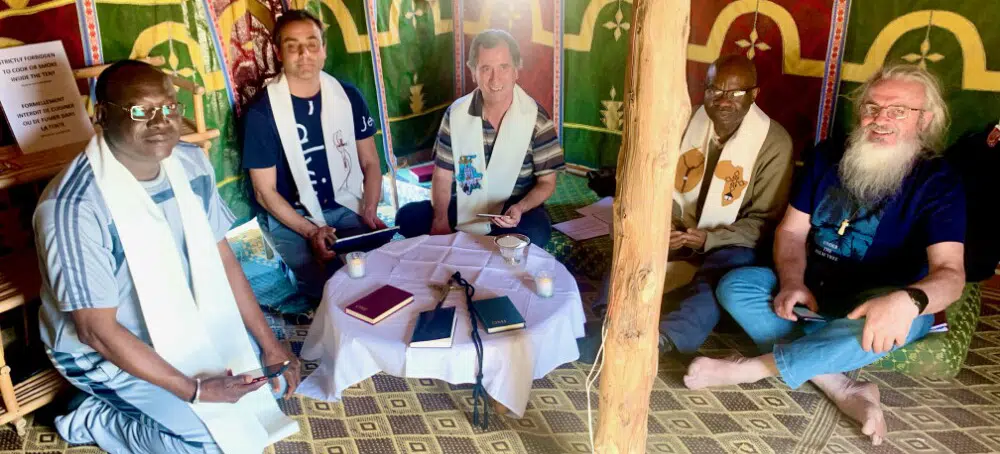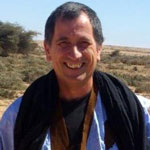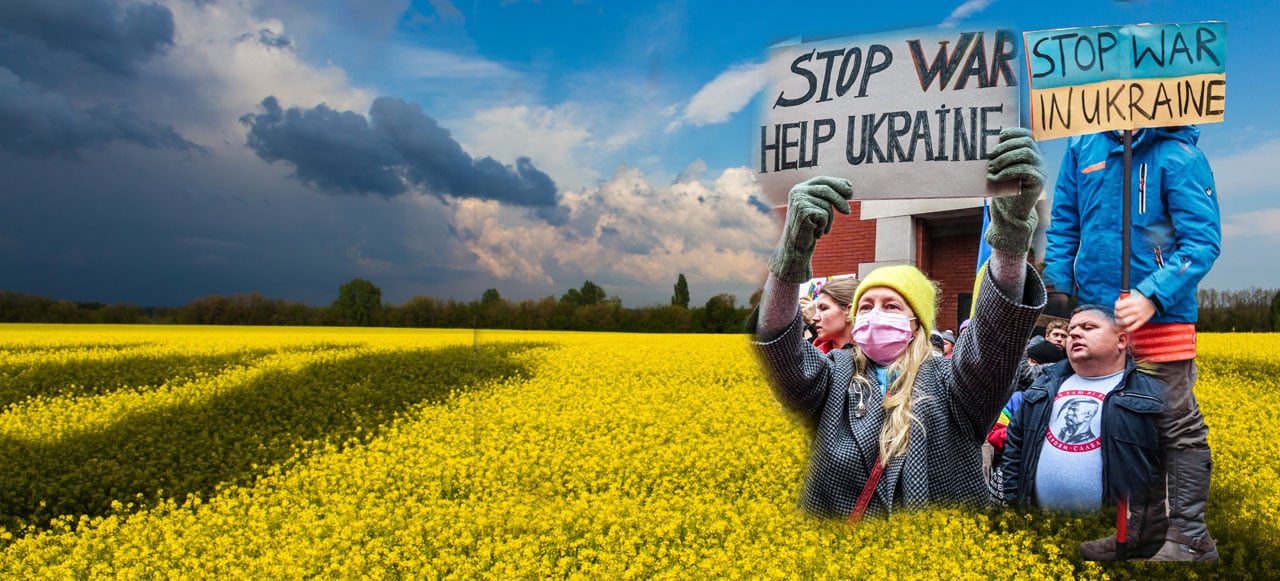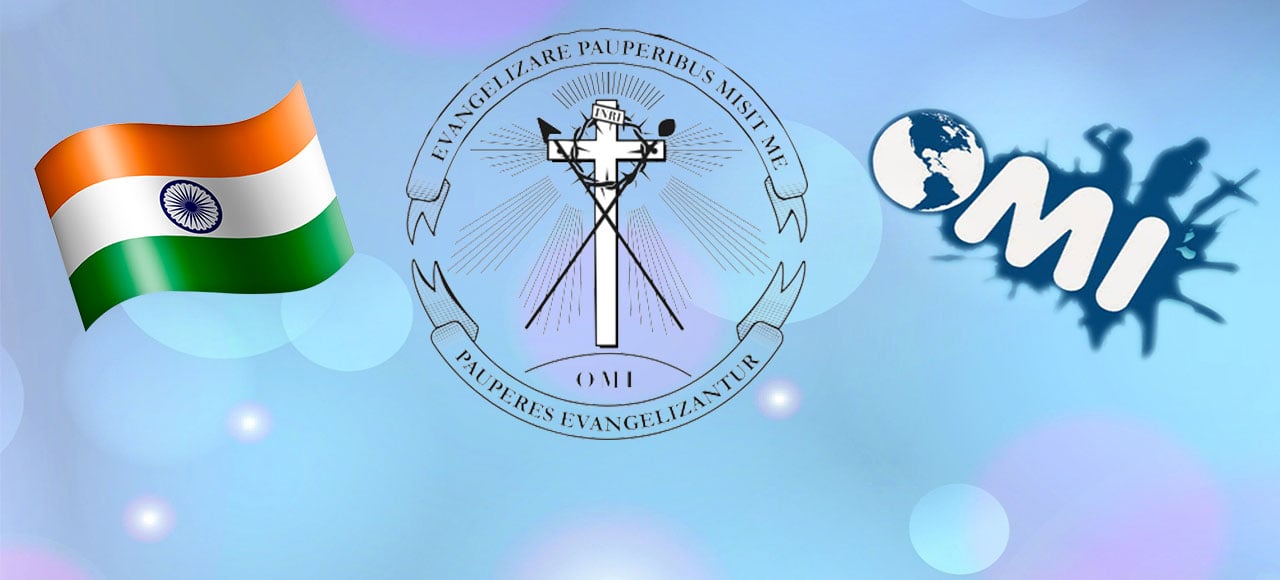Here you will find the second in a series of animation materials in preparation for our 37th General Chapter. The first one was prepared by Fr. Warren Brown, OMI. These documents are based on the theme of our Chapter – “Pilgrims of Hope in Communion” and are meant for personal and communal reflection and discussion.
 Fr. Chicho Rois, OMI
Fr. Chicho Rois, OMI
OMI Mission of the Sahara
Allahu Akbar (ٱللَّٰهُ أَكْبَرُ).
Many times, these are the first words I hear when I wake up, or when I am in the chapel praying, and even sometimes at the very moment of the Eucharistic consecration. It’s shocking when this happens! God is bigger! Yes, God is always much more than what I can conceive or even imagine. I am a pilgrim who goes forward, little by little embracing that Mystery in itself unfathomable. And I’m not alone; all of humanity is on that pilgrimage journey, perhaps along different paths, but towards the same goal.
Always open to the Mystery, the pilgrim must leave behind so many things that get in his way. He evidently abandons what prevents him from walking. He also leaves behind what has accumulated so much dust along the way that it is no longer useful. Sometimes he discovers that he also must leave some things that are very dear to him, good things in themselves, but that today prevent or slow down his progress. Pilgrimage is an act of faith, of full trust; some speak of jumping into the void. Pilgrimage is accepting the challenge of tentatively reaching out toward the footsteps of the One who is at the origin and draws us towards the goal. We believe that in Jesus, God has become a pilgrim, traveling to meet us. And this forces us to a permanent and active contemplation of what is happening and who is walking by our side. For this reason, in any circumstance and at any age, we must be open to God’s surprises and take risks, venture down those new paths that the Spirit places before us.
Servants of hope.
This is the title of the document that serves as the “road map” of the Churches of North Africa. In territories where the population is overwhelmingly Muslim, Christians, sometimes in extreme situations, see themselves as servants who sow hope. Being servants is a call that the pilgrim must accept if he wants to understand what the Spirit asks of us individually, as a Congregation or as a Church. We can only go on pilgrimage if we place ourselves at the service of the poorest. Putting oneself at service is already, in itself, a reason for hope, not only for the poor, but above all for ourselves. To know who we are and where we are going, we must put ourselves at service, as did the One who told us to do so in memory of him (John 13:1-15).
To put ourselves at the service of the other, we need to be humble: it is not our mission, but the mission of God, One and Triune. We are not the protagonists; only Jesus and the poor can be that. They are not our programs or our strategies: we are the servants-coworkers, not the saviors… Perhaps we are simply called to “unleash processes whose fruits will be gathered by others, with hope placed in the secret forces of the good that is sown” (Evangelii Gaudium 196). What is “ours” is to put ourselves always at the service of the most abandoned (OMI Constitution 5) and in this we risk our lives (C. 2). That is our oblation.
The dream of communion.
It seems that this pandemic we are suffering has drowned, like a tsunami, all our dreams. In addition to the direct victims who have suffered, there is talk of the long-term consequences. Cases of mental illness and suicide have increased, especially in the younger population. To escape so much suffering and anguish, some have immersed themselves in the virtual world that, without adequate discernment, alienates us and dries us up spiritually. What a paradox that for the majority, their only dream for the future is to return to what there was before! Go back to pre-pandemic normalcy after everything we’re going through? The truth is that perhaps we do not dare to dream otherwise. They have robbed us of our ability to dream! Who dares today to speak of a new heaven and a new earth where justice dwells (2Peter 3,13)? Who defends Jesus’ dream “that all may be one like You Father in me and I in You” (Jn 17:21)? Who dreams with Saint Eugene that in our communities and homes, we are to be of one heart and one soul? Our communities are called to be like a sacrament, an effective sign of the “dreams of God” in each particular context, since “the characteristic of a local community is to be a prophetic sign that gives the world reasons to hope in the search for integrity and harmony” (C.91).
Let’s dream of brotherhood, but let’s not do it alone.
“‘How important it is to dream together… By ourselves, we risk seeing mirages, things that are not there. Dreams, on the other hand, are built together’. Let us dream, then, as a single human family, as fellow travelers sharing the same flesh, as children of the same earth which is our common home, each of us bringing the richness of his or her beliefs and convictions, each of us with his or her own voice, brothers and sisters all” ( Fratelli Tutti 8). Let us dream together with Jesus Christ and with the poor; let us dream together with the sisters and brothers of our Oblate family; let us dream together with other pilgrims who travel paths different from ours. Let us dream of the future of our humanity, the future of our Church, the future of our Congregation. Let us dream walking, believing, serving, loving.
In two places in our CC and RR, the triad “faith, hope and charity” appears. Opening the section on apostolic religious life, C. 11 tells us, “Growing in faith, hope and love, we commit ourselves to be leaven of the Beatitudes in the heart of the world”. What a beautiful synthesis of what is and should always be our mission! Opening the chapter “Living in faith”, C. 31 says that “as pilgrims, (the Oblates) walk with Jesus in faith, hope and love”. Two verbs that denote dynamism: to grow and to walk. Here is our program for this time of grace, this preparation for the General Chapter. To grow and walk in faith, hope and charity is also to be pilgrims (faith) of hope in communion (charity).
Questionnaire to animate our personal reflection and community sharing.
1.- As a pilgrim of faith, what are the inspirations of the Spirit that I feel in order to be able to better embrace the Mystery of God and the mystery of my Oblate vocation? What do I have to give up? What new path should I take? What is my dream (our dream) so that the whole Oblate family can make a pilgrimage growing in faith?
2.- As a pilgrim of hope, what do I have to do to be a servant of hope in my current context? What processes are we called to begin personally, as a Congregation, as an Oblate family? What is my dream (our dream) as to how the Oblate family should respond to being servants of the most abandoned?
3.- As a pilgrim of communion, how do I feel that God is asking me to collaborate in the dream of Jesus Christ of realizing humankind as reconciled, fraternal and in communion? What is my dream for humanity, for the Church, for the Congregation and the Oblate family? What steps can we take to make the Oblate family a sacrament of these dreams?

 Fr. Chicho Rois, OMI
Fr. Chicho Rois, OMI
